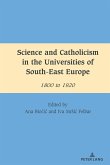This book is an extended study, in the Post-Reformation period, of the impact of the Gaels in the west of Scotland and the north of Ireland on each other's religious heritage. Beginning half a century before the plantation of Ulster, Missions to the Gaels illuminates the origins of the sectarian divisions in Northern Ireland. The research deals with both Protestants and Catholics, rather than treating only one denomination in isolation. The author explores the intriguing situation whereby Scottish Gaelic-speaking ministers laid the foundations of the embryonic Protestant Church in Ireland, while at the same time Irish-speaking priests were almost exclusively responsible for the reintroduction of Catholicism to the Highlands and Islands of Scotland. The range of this book extends beyond narrow ecclesiastical issues: it reveals the broader political and cultural forces that determined the Gaels' choice of religious alignment and traces the effects of these over two centuries of turbulent change in Gaelic society.
Dieser Download kann aus rechtlichen Gründen nur mit Rechnungsadresse in A, B, BG, CY, CZ, D, DK, EW, E, FIN, F, GR, H, IRL, I, LT, L, LR, M, NL, PL, P, R, S, SLO, SK ausgeliefert werden.









